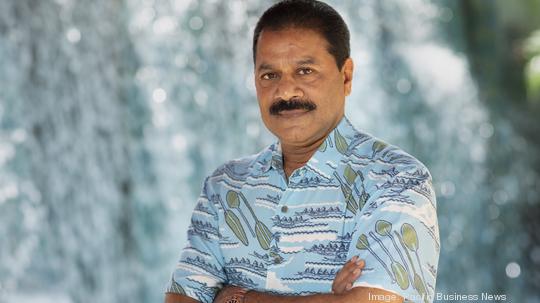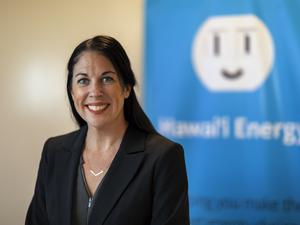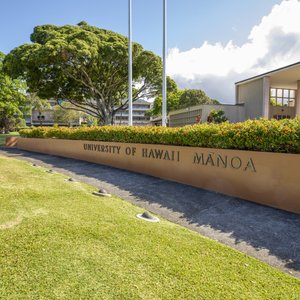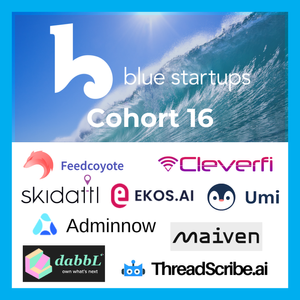
Eighteen months. That's the average amount of time eWorld Enterprise Solutions — a Hawaii-based IT consulting company — invests per local hire as part of its university to employment pipeline, Bhanu Vellanki, the company's president and CEO told Pacific Business News.
In a state where local tech talent can be hard to find, eWorldES's process includes offering internships to computer science and business students at the University of Hawaii, training them in eWorld's practices and offering them jobs upon graduation.
"We have close to 50 UH graduates [among our current employees]... and by the time our interns graduate we have a 95% success rate of them joining eWorld," Vellanki told PBN. "The 18 months of time we invest in each internship really gives them the opportunity to learn with us many things before graduation.
Vellanki accepted the position of president and CEO of eWorldES amid the pandemic and, like many companies, eWorldES quickly learned to use programs like Zoom, Teams, and Webex for daily communication with staff and clients, allowing the company to do its IT work remotely.
Vellanki says that two years of online virtual picnics, Christmas parties, and pau hanas later, the company has successfully navigated work from home, and grown revenues by 30% in two consecutive years, while significantly increasing its staff.
Founded in 1999, the IT consulting company hires an average of two to four interns, in addition to two to four UH graduates, a year.
"We’ve been investing in this strategy for the last 10 years, so we have a relationship with the university and with professors in the business and computer science schools at UH," Steven Sakata, eWorldES's vice president, told PBN.
"They teach [students] the basic knowledge and education they need to know, and then they hand them off to us for that real world experience factor," Sakata said. "Then a few times a year we’ll show UH's professors what these interns and graduates are working on, which is good feedback for them to make sure their instruction is in sync with what’s being learned and used in the industry."
Sakata says that part of eWorld's hiring strategy includes focusing on candidates who have made it clear that their goal is to stay in Hawaii, rather than trying to compete with candidates who have expressed interest in accepting Mainland offers.
"At a high level, we struggle with everyone else to find and hire resources, we’re not immune to that, but I think this focus on the internship anchoring these local gradates is part of our sustainability strategy, because these interns and graduates have decided they want to build a career in Hawaii," Sakata said.
eWorldES also participates in the state-sponsored hackathon, a problem-solving event that brings together members of Hawaii's tech community, and works with the Hawaii Technology Development Corporation which often solicits the company to do presentations on its current projects.
"Everyone’s very interested in promoting workforce development to make sure that students and graduates know that if they want to stay here there are options," Sakata said.
Growing amid Covid
eWorldES currently employs a team of 208, including contractors — nearly triple the headcount it had before the Covid-19 pandemic. The recent expansion in the company's workforce is largely due to the fact that eWorldES has seen an influx of projects during the pandemic, Vellanki told PBN.
"During the past two years of Covid-19 our staff increased with certain projects like providing support to the State Safe Travels program," Vellanki said. "eWorldES was behind the scenes answering the phones, web messages, [and] emails from the public."
Vellanki said that eWorldES fielded more than 1.5 million calls and opened and completed more than 1 million help tickets while working closely with state agencies.
"During the first three months of the state shutdown, eWorldES was also asked to convert an application for benefits which was paper based to an 100% online process," Vellanki said. "eWorldES developed, tested, and deployed the online application portal (Public Assistance Information System) in less than a few weeks."
Since then, Vellanki says more than 250,000 applications for benefits have been completed online, providing resources that are "a crucial safety net for families in need."
The future of tech in Hawaii
"The Covid-19 pandemic challenged and stretched all of us in ways we did not think possible or that we would overcome," Vellanki said. "Two years later, our clients and our company are stronger. We have delivered technologies like Artificial Intelligence and cloud computing that no one had plans to be in place by now.
Vellanki says that continuing to invest in local tech talent will be crucial in growing the Island innovation economy, in addition to adopting new technologies.
"The future of Hawaii tech is to ride these new advances brought in because of Covid-19," he said. "As a result, it has allowed us to be faster, smarter, and more efficient on deliver solutions in the coming years. I think Hawaii tech is ready for the next challenge that may arrive at our shores."







